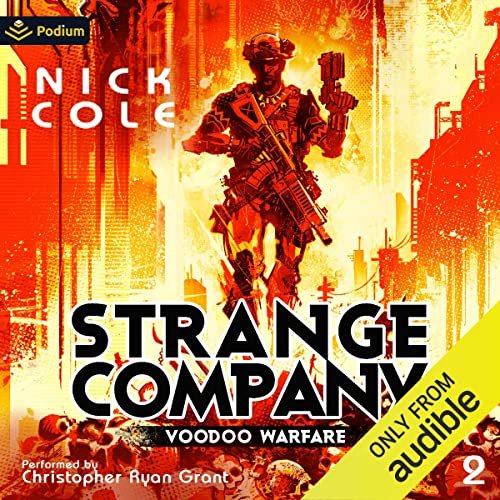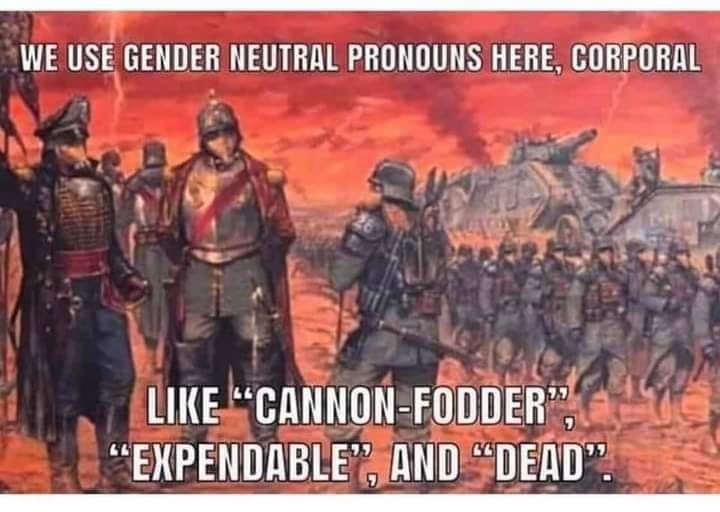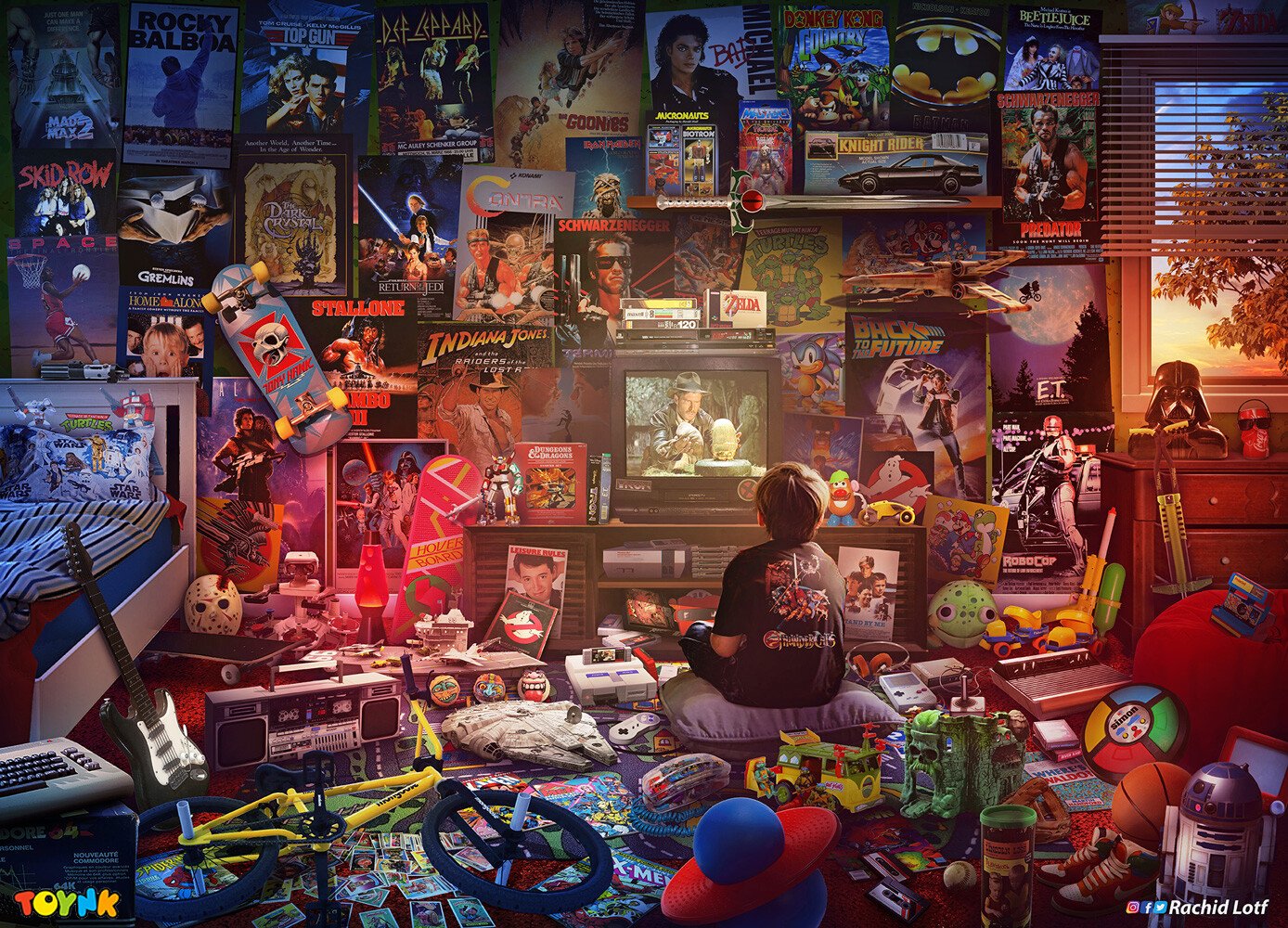Strange Company 2: Voodoo Warfare Book Review
John Straang’s company is back, and everything is even weirder than before. It’s been twenty-five years since the Strange escaped from Crash, or Astralon, call it what you will. They limped away at sublight speeds, hoping for a better tomorrow. It didn’t come.
Instead, Sergeant Orion and the rest will go once more into the breach:
It was a final game for all the marbles, or what marbles called worlds remained in the bonfire burning, consuming known space. A battle of three sides where strange alliances were made, and broken, as the table changed moment to moment in the grand game of Cheks playing out across the stars. New conquerors and would-be saviors shuffled their decks, seeking a card to play for the win, not above a cheat, a prayer, or a promise of a better tomorrow never delivered.
Into this madness and maelstrom rode the Strange Company, sleeping in an old destroyer they called the Spider. Determined to have their say, if even just now, at the end of all things…

Strange Company 2: Voodoo Warfare by Nick Cole Audiobook Narrated by Christopher Ryan Grant Cover by Trent Kaniuga
In the last book, the Strange Company just barely escaped from the Ultras, the elite of the elite soldiers that serve the ruling Monarchs. This time, the Company will take on the Ultras directly. You might suspect that won’t go well. And you would be right.
I’ve been so bold in the past as to lament the dearth of proper tragedies in men’s adventure fiction, so Nick Cole has come along to prove me wrong by writing some. One of the classic ways that tragedy works is the hero’s failings end up overwhelming him. This was how Frank Herbert wrote Dune, but you have to follow through to Dune: Messiah to see the payoff, as Herbert worked really hard to build up Paul Atreides as a charismatic leader and a brilliant general in the first book so that his downfall in book two would have greater impact.
Voodoo Warfare is also a tragedy, but it works in another way. Tragedy can also use suffering to grant dignity to the rejected and the broken. I’ll illustrate this with a quote from my favorite theorist of literary criticism, Northrop Frye:
Tragic heroes are wrapped in the mystery of their communion with that 'something beyond' which we can only see through them, and which is the source of their strength and their fate alike....In all tragedies there is a sense of some far-reaching mystery of which the morally intelligible process is only a part. The hero's act has thrown a switch in a larger machine than his own life, or even his own society. ("The Mythos of Autumn")
Sergeant Orion, and the rest of Strange Company as we see them through his eyes, are fated to have a role to play in the downfall of the Monarchs; there is more to it than simply a bunch of mercs working a job. The magic of Voodoo Warfare is that it weaves a spell of words that allow you to pierce the veil and catch a glimpse of that ‘something beyond’ that transcends the horror and drudgery of getting shot at for a living. But at the same time, Cole writes with a visceral immediacy of just how stupid that horror and drudgery really can be.

In the time in-between reviewing the first Strange Company book and Voodoo Warfare, I took the opportunity to read Glen Cook’s The Black Company. Even before I read the book, the thematic link was obvious, but I can now see how Cole has adapted Cook’s themes from the Vietnam era to the Afghanistan era, from the Cold War to the Global War on Terror.
Yet, in what I see as Cole’s signature style, there is far more literary inspiration here than just The Black Company. You can find references from Fear and Loathing in Las Vegas to Warhammer 40K, a distillation of the last forty or fifty years of popular culture, but probably weighted towards the ‘80s with its superb action movies.

To the best of my knowledge, Cole is a bit older than me, likely Gen X rather than Gen Y, but all his work is suffused with the nostalgia so characteristic of Gen Y. Nostalgia can be a trap, but it can also be part of the mechanism by which our culture achieves its final form.
Spengler's more sanguine interpretation of the trajectory of the modern world: the work of the modern age is to produce the final forms of the West, the culture and institutions that will last as long as the civilization of the West endures. In Spengler's model, that need not be forever, but it could also be a very long time. -John J. Reilly
In Oswald Spengler’s famous formulation of history, the period that follows modernity, what he called civilization, is when all of the most characteristic products of a culture are perfected. That is the period we are entering now. As such, I am not quite as concerned as many others that the enormous burst of cultural creativity we saw in popular culture in the twentieth century seems to have dissipated.
This is what you should expect to happen, as periods of cultural creativity all too often seem to also be politically and personally chaotic. It can’t go on forever. Now, our task is to curate and perfect the best of what came from that time. Voodoo Warfare is stretching toward the kind of thing I’m talking about: an attempt to move us towards the kind of stories that we’ll keep telling ourselves for a very long time indeed. I’m not saying that Cole is a derivative hack. Any writer of talent already knows their debt to those who came before.
I’m saying that perhaps the way forward involves looking back, and that a pseudo-memoir by a sometimes war criminal might offer an unexpected glimpse of transcendence. For Hot Soup.
Buy a copy of Strange Company 2 from Amazon.
With Both Hands Classics | My other book reviews | Reading Log
Other books by Nick Cole
Comments ()